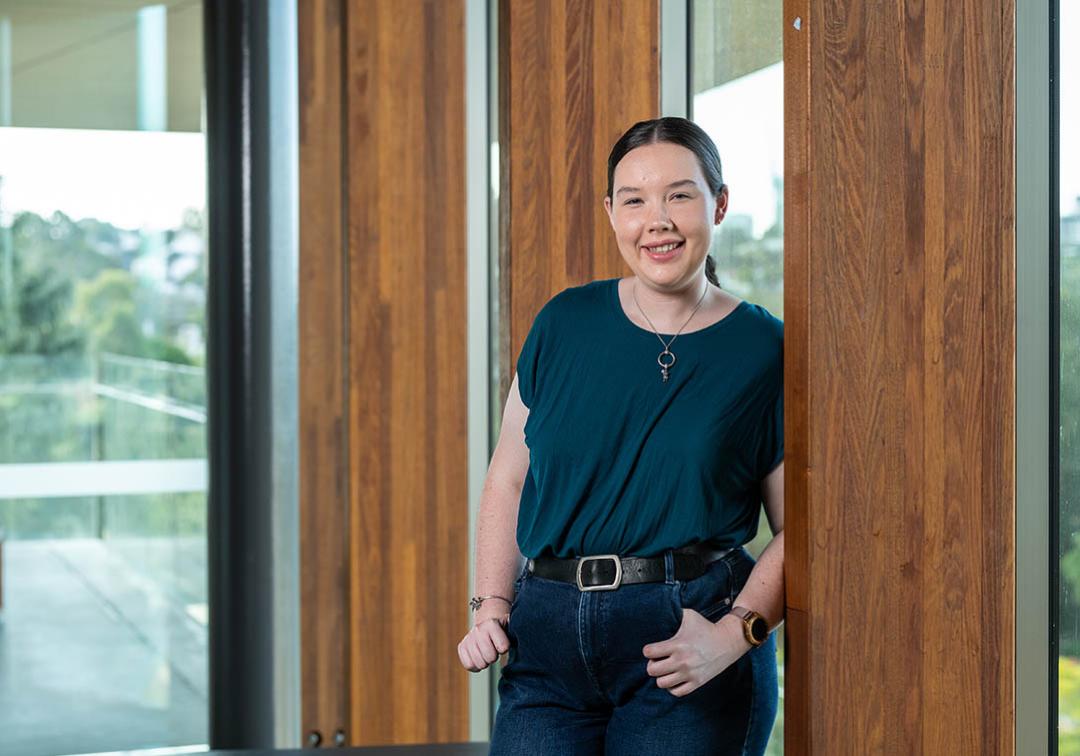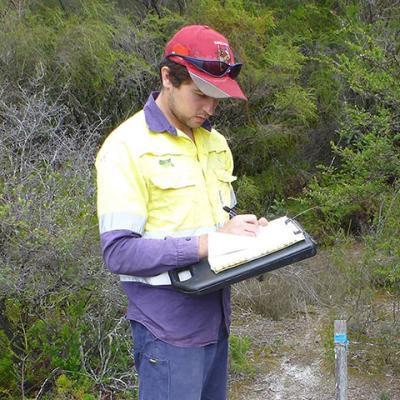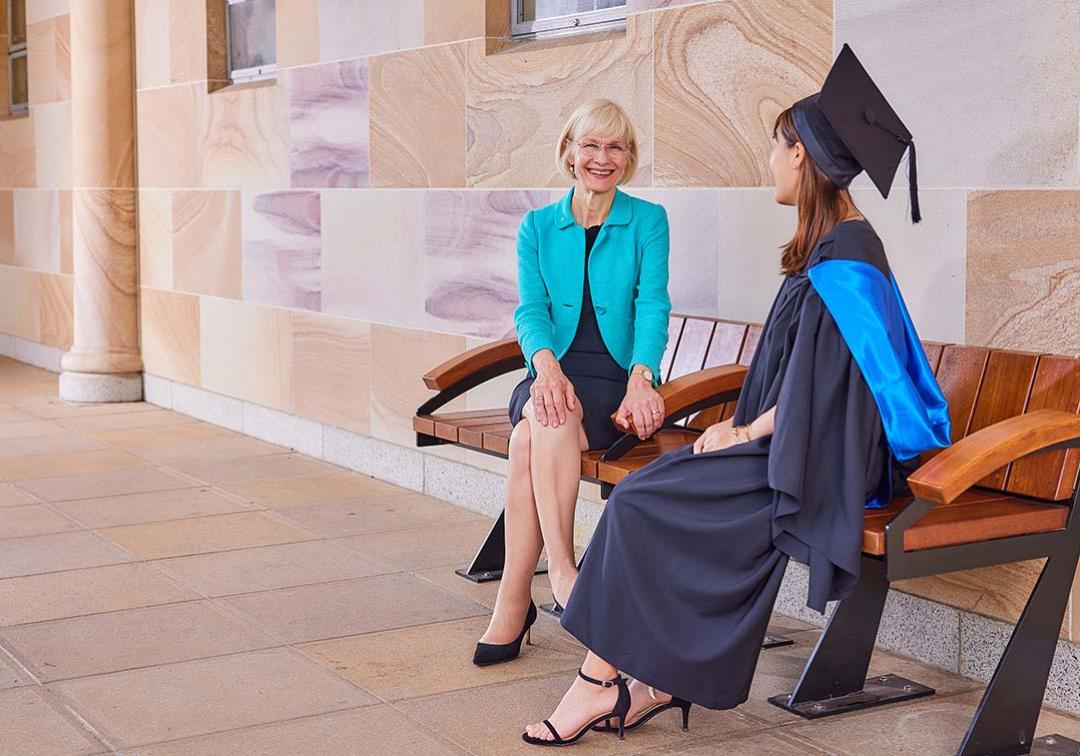
Bachelor of Environmental Science (Honours)
Overview
Undertake a research apprenticeship at Australia’s highest-ranked university for research in environmental sciences.
Open up pathways to further research, postgraduate study options and exciting career opportunities by undertaking an additional year of study to obtain your honours in environmental science.
During your honours year, you'll work under the guidance of a researcher to pursue an independent research project in an area of interest.
Learn how to research the environment, apply your critical thinking skills and communicate and present your results.
Depending on the nature of your research project, you can also undertake fieldwork in diverse subtropical and tropical ecosystems, including World Heritage rainforests, the Great Barrier Reef, North Stradbroke Island and outback Australia.
When you graduate, you'll find employment and research opportunities throughout industry, government and other sectors, and enjoy the personal and professional satisfaction of safeguarding our environment.
Alternately, further your research ambitions by continuing into a higher degree by research to further develop your skills and make significant contributions to knowledge.
Program highlights
- Tailor your studies to your interests and career goals with a flexible program that gives you the freedom to follow your passion.
- Work under the guidance of a researcher and learn how to deliver a range of environmental strategies and solutions based on your findings.
- Be in high demand by employers for your ability to think critically and work independently.
How you'll learn
Your learning experiences are designed to best suit the learning outcomes of the courses you choose.
- Research experience
- Laboratory work
- Fieldwork
- Workshops
What you'll study
At UQ, degrees are called 'programs' and subjects are called 'courses'. Here's a sample of the courses you could study in this program:
- Honours Research Project
Career possibilities
Our programs prepare you for your first job and beyond. Here are some of the careers you could be on your way to:
- Research scientist
- Environmental scientist
- Environmental researcher
- Environment adviser
- Impact assessment scientist
- Aviation and wildlife consultant
- Soil carbon researcher
- Toxicology consultant
- Water quality specialist
Graduate salary
Science and mathematics (undergraduate)
compared.edu.au
Graduate salary
Agriculture & environmental studies (undergraduate)
compared.edu.au
Next steps after graduation
As a graduate, you will contribute to environmental decision-making and management, and address global environmental challenges. You can find employment in organisations and sectors such as:
- consultancy dealing with environmental monitoring, impact assessment and management
- government agencies, nationally and internationally
- mining industries
- private companies, providing sustainability advice
- natural resource management, including coastal, river and catchment systems
- national parks and wildlife conservation
- policy development for government
- teaching and research
- environmental tourism
- international agencies.
Events
See all events
1 May - 22 May
UQ's Sustainable Energy programs, Q&A webinars
Stories
See all stories
Uni life
What’s it like to study agriculture, environment and sustainability as a postgraduate?

UQ people
Fighting fire with science: new tech to protect firefighters
Stories
See all stories
Uni life
What’s it like to study agriculture, environment and sustainability as a postgraduate?

UQ people
Fighting fire with science: new tech to protect firefighters

Careers
How global disruption is shaping business careers
Entry requirements
Prerequisites
- a grade point average (GPA) of 4.0 on a 7-point scale, and
- a GPA of at least 4.5 for 8 units of courses at level 3 or higher relevant to the honours project, and
- have secured an honours project and supervisor, and
- satisfied any additional requirements set by the head of school.
Prerequisites
- a grade point average (GPA) of 4.0 on a 7-point scale, and
- a GPA of at least 4.5 for 8 units of courses at level 3 or higher relevant to the honours project, and
- have secured an honours project and supervisor, and
- satisfied any additional requirements set by the head of school.
English language requirements
IELTS overall 6.5; reading 6; writing 6; speaking 6; listening 6. For other English Language Proficiency Tests and Scores approved for UQ
TOEFL iBT (including Paper Edition) - Overall 87, listening 19, reading 19, writing 21 and speaking 19.
PTE Academic - Overall Score of 64 and 60 in all sub bands.
BE - A minimum overall grade of 4 plus a minimum grade of C in all macro skills.
CES - Overall 176 and 169 in all sub bands.
OET is not accepted.
There are other ways to meet the English language requirements. For some programs, additional conditions apply.
Student visas
International students who are accepted into full-time study in the Bachelor of Environmental Science (Honours) are eligible to apply for an Australian student visa (subclass 500).
There are a number of requirements you must satisfy before a visa is granted, including the Genuine Student (GS) requirement.
Fees and Scholarships
Indicative annual fee
Approximate yearly cost of tuition (16 units). Your fees will vary according to your selected courses and study load. Fees are reviewed each year and may increase.
$8,948
2024
$8,948
2024
Approximate yearly cost of tuition (16 units). Your fees will vary according to your study load. Fees are reviewed each year and may increase.
AUD $48,160
2024
AUD $48,160
2024
Government assistance
Financial aid
As an international student, you might be eligible for financial aid – either from your home country, or from the Australian Government.
HECS-HELP
Domestic places in the Bachelor of Environmental Science (Honours) are Commonwealth Supported. This means the cost of your education is shared between you and the Australian Government.
Instead of tuition fees, Commonwealth Supported students pay what are called student contribution amounts.
HECS-HELP is an Australian Government loan scheme to assist eligible students with the cost of their student contribution amounts.
Centrelink support
The Australian Government offers a number of income-support payments to eligible Australian university students.
Scholarships
You may be eligible for more than 100 scholarships, including:
How to apply
Applying online
All international applications should be submitted to UQ. If you prefer, you can use an approved UQ agent in your country.
The program code for the Bachelor of Environmental Science (Honours) is 2459.
Applying online
All domestic applications should be submitted to UQ.
The program code for the Bachelor of Environmental Science (Honours) is 2459.
Important dates
The closing date for this program is:
- To commence study in semester 2 - May 31 of the year of commencement.
- To commence study in semester 1 - November 30 of the previous year.
To learn more about UQ dates, including semester start dates, view the Academic Calendar.
Important dates
The closing date for this program is:
- To commence study in Semester 1 - January 31 of the year of commencement.
- To commence study in Semester 2 - June 30 of the year of commencement.
To learn more about UQ dates, including semester start dates, view the Academic Calendar.
Aboriginal and Torres Strait Islander applicants
For support with applying – or if you have any questions about university life – get in touch with our Aboriginal and Torres Strait Islander Studies Unit.
Explore other programs
Express yourself. And your interest.
They say choosing a degree is hard, which is why we've made it easy. Register your interest and we'll send you everything you need to know about applying to UQ.




